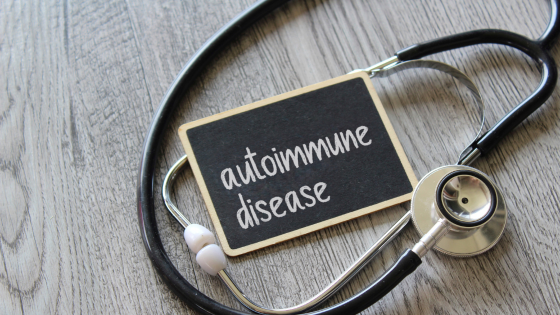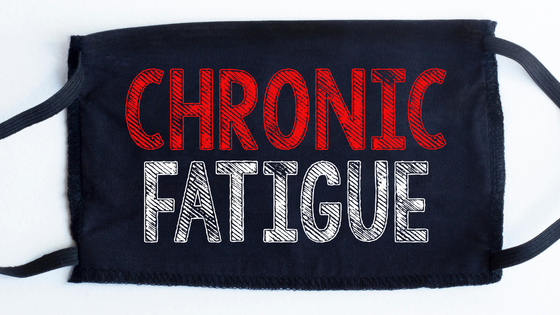Living with autoimmune disease can be challenging. However, exercise has the potential to positively impact symptoms, improve overall well-being, and enhance quality of life. In this blog post, I will delve into the science behind the benefits of exercise for individuals with autoimmune disease, focusing on the autoimmune protocol. Additionally, I will introduce the MOVEMENT RESTORATION framework , which provides a structured and safe approach to incorporating exercise into your daily routine. By understanding the scientific mechanisms at play, we can optimize the effects of exercise on inflammation, immune function, physical fitness, mental health, and overall management of autoimmune disease.
Autoimmune Disease and the Autoimmune Protocol
Autoimmune diseases occur when the immune system mistakenly attacks healthy cells in the body. This dysregulation leads to chronic inflammation, tissue damage, and a range of symptoms. The autoimmune protocol, a dietary and lifestyle approach, aims to reduce inflammation and support the body’s healing process. Exercise is a fundamental component of the autoimmune protocol, playing a vital role in managing autoimmune disease.
The Science Behind Exercise and Autoimmune Disease
Exercise has a profound impact on autoimmune disease through several scientific mechanisms. First and foremost, exercise helps modulate inflammation. Regular physical activity stimulates the release of anti-inflammatory cytokines, reducing chronic inflammation associated with autoimmune diseases. Additionally, exercise promotes a balanced immune response by enhancing immune cell function and improving immune surveillance. This modulation of the immune system contributes to the management of autoimmune diseases.
Exercise also influences neurotransmitter release and hormonal balance. When we exercise, our bodies release endorphins, dopamine, serotonin, and other neurotransmitters that improve mood, reduce pain perception, and alleviate stress. These effects are particularly beneficial for individuals with autoimmune diseases who often experience pain, fatigue, and mood disturbances.
Furthermore, exercise plays a crucial role in cardiovascular health. Autoimmune diseases can increase the risk of cardiovascular complications, but regular exercise improves cardiovascular fitness, reduces blood pressure, enhances lipid profiles, and improves endothelial function. These benefits contribute to better cardiovascular health and reduce the risk of heart-related complications in individuals with autoimmune diseases.
Muscle strength, joint support, and mobility are also positively influenced by exercise. Strength training exercises help build muscle strength, improve joint stability, and reduce pain associated with autoimmune arthritis and joint-related symptoms. This can enhance physical function and quality of life for individuals with autoimmune diseases.
Exercise has a significant impact on mental well-being as well. It has been shown to reduce anxiety and depression, improve self-esteem, and enhance overall mental health. By stimulating the release of neurotransmitters and promoting the mind-body connection, exercise becomes a powerful tool for managing the psychological aspects of living with autoimmune disease.
Success is Not Linear When it Comes to Exercise and Autoimmune Disease
Exercise and gaining strength with autoimmune disease is not a linear process. It’s important to understand that progress may fluctuate, and setbacks can occur along the way. Autoimmune diseases are characterized by their unpredictable nature, and symptoms can vary from day to day.
Therefore, it’s crucial to approach exercise with patience, adaptability, and a deep understanding of our bodies. Rest and recovery play a vital role in this journey. Pushing ourselves too hard without allowing for adequate rest can lead to increased fatigue, worsened symptoms, and potential flares. Listening to our bodies is essential in determining when to push forward and when to dial back. By tuning into the signals our bodies give us, we can make informed decisions about the intensity and duration of our workouts.
Additionally, managing flares is crucial to maintaining our overall well-being. During flare-ups, it may be necessary to modify our exercise routine, focusing on gentle movements that support healing without exacerbating symptoms. Balancing exercise with rest, recovery, and effective flare management is key to finding a sustainable and empowering approach to gaining strength and improving our overall health with autoimmune disease.
Introduction to the Autoimmune MOVEMENT RESTORATION Framework
Regular exercise is important for everyone, including individuals with autoimmune diseases. Engaging in safe and appropriate physical activity can have numerous benefits, such as improved strength, flexibility, cardiovascular health, mood, and overall well-being. However, it is crucial to approach exercise with caution and consideration for your unique abilities and limitations.
The MOVEMENT RESTORATION Framework emphasizes the importance of safe exercise tailored to your abilities and limitations, incorporating the science behind movement for individuals with autoimmune disease.
MOVEMENT
M – Mindful Approach: Take a mindful approach to exercise by listening to your body and being aware of your limitations. Autoimmune diseases affect each person differently, so it’s important to pay attention to how your body responds to different types and intensities of exercise. If something feels uncomfortable or causes pain, modify or discontinue the activity.
O – Overarching Goal: Set realistic and achievable goals that align with your overall health and well-being. Focus on improving your strength, flexibility, and cardiovascular fitness gradually, taking into account your current abilities and any medical advice. Remember, progress may not be linear, and it’s important to celebrate small victories along the way.
V – Variation: Incorporate a variety of exercises and activities into your routine. This can help prevent overuse injuries, improve overall fitness, and keep your workouts enjoyable. Choose activities that you enjoy and that are appropriate for your condition, such as walking, swimming, yoga, or strength training.
E – Exercise Modifications: Be willing to modify exercises to suit your specific needs. If you have joint pain or limited mobility, consider low-impact exercises or use modifications that reduce stress on your joints. Work with a qualified fitness professional who understands your condition and can provide guidance on appropriate modifications.
M – Monitoring: Regularly monitor your symptoms and energy levels before, during, and after exercise. Keeping a journal can help you track your progress and identify any patterns or triggers. If you experience excessive fatigue, increased pain, or other concerning symptoms, adjust your exercise routine accordingly and consult with your healthcare provider.
E – Energy Conservation: Autoimmune diseases can cause fatigue and reduced energy levels. Prioritize energy conservation by balancing exercise with adequate rest and recovery. Listen to your body’s signals and give yourself permission to rest when needed. This will help prevent burnout and support your overall well-being.
N – Nutrition and Hydration: Proper nutrition and hydration are essential for supporting your body during exercise. Follow a balanced and nutrient-dense diet, such as the autoimmune protocol, to support your overall health and provide the necessary fuel for physical activity. Stay hydrated before, during, and after exercise to optimize your performance and recovery.
T – Training Support: Seek guidance from healthcare professionals, such as autoimmune paleo coaches or fitness instructors familiar with autoimmune diseases. They can provide valuable support and expertise in developing a safe and effective exercise plan tailored to your specific needs. Work together to create a program that considers your abilities, limitations, and individual goals.
RESTORATION
R – Rest and Recovery: Allow sufficient time for rest and recovery between exercise sessions. Rest is crucial for your body to repair and rebuild, especially when dealing with autoimmune diseases. Aim for quality sleep, incorporate rest days into your routine, and practice relaxation techniques to support your body’s healing process.
E – Educate yourself: Learn about your specific autoimmune condition and how exercise can benefit it. Understanding the science behind it can empower you to make informed decisions.
S – Seek professional guidance: Consult with a healthcare professional, such as a certified autoimmune paleo coach or fitness instructor, who can provide personalized guidance and support.
T – Take breaks: Allow yourself regular breaks during exercise sessions and listen to your body’s need for rest. Overexertion can lead to fatigue and increased risk of flares.
O – Optimize energy management: Pace yourself and manage your energy levels to avoid exhaustion. Prioritize activities that enhance your energy and overall well-being.
R – Rest and recover: Incorporate proper rest and recovery periods into your routine. This allows your body to repair and rebuild, promoting long-term strength and health.
A – Adaptability: Embrace adaptability in your exercise routine. Autoimmune diseases can be unpredictable, and you may need to modify your workouts based on how you feel on any given day. Be flexible and willing to make adjustments to your routine as needed to accommodate flares, fatigue, or other symptoms.
T – Tracking and Progress: Keep track of your progress over time to see how far you’ve come. Celebrate small victories, whether it’s increased strength, improved flexibility, or better endurance. Remember that progress may vary, and comparing yourself to others is not productive. Focus on your individual journey and celebrate your own accomplishments.
I – Individuality: Recognize and respect your own unique abilities and limitations. Autoimmune diseases affect each person differently, so avoid comparing yourself to others. Embrace your individuality and prioritize exercises and activities that are suitable for your condition and align with your personal preferences and goals.
O – Optimal Time: Find the optimal time of day for exercise based on your energy levels and personal schedule. Some individuals with autoimmune diseases may find that they have more energy in the morning, while others may prefer to exercise in the afternoon or evening. Experiment and listen to your body to determine the best time for you.
N – Nurturing Mind and Body: Remember that exercise is not just about physical fitness; it is also an opportunity to nurture your mind and body. Engage in activities that bring you joy, reduce stress, and improve your mental well-being. Explore mindful practices such as yoga or meditation to enhance the mind-body connection.
Exercise, when approached with the autoimmune protocol and MOVEMENT RESTORATION Framework in mind, can have profound benefits for individuals with autoimmune disease. By understanding the science behind exercise’s effects on inflammation reduction, immune system modulation, neurotransmitter release, cardiovascular health, muscle strength, joint support, and mental well-being, we gain valuable insights into the potential of exercise in managing autoimmune disease.
It is important to consult with healthcare professionals, listen to your body, and tailor your exercise routine to your specific needs. With a comprehensive approach that includes the autoimmune protocol, the MOVEMENT RESTORATION Framework, and ongoing education, you can unlock the transformative power of exercise and optimize your well-being while living with autoimmune disease.
If you are looking for more tips and support, join me over on my group page, The Village – A Natural HEALing Community, to get tons of information and tips to help you take your HEALTHY EATING and ACTIVE LIVING to the next level.
REFERENCES:
- “Exercise and Autoimmune Disease: Mayo Clinic” https://www.mayoclinic.org/diseases-conditions/rheumatoid-arthritis/in-depth/rheumatoid-arthritis-exercise/art-20096281
- “The Benefits of Exercise for Autoimmune Disease: Arthritis Foundation” https://www.arthritis.org/health-wellness/healthy-living/physical-activity/the-importance-of-exercise-for-autoimmune-diseases
- “Exercise and Autoimmune Conditions: National Multiple Sclerosis Society” https://www.nationalmssociety.org/Living-Well-With-MS/Health-Wellness/Exercise
- “Exercise and Autoimmune Thyroid Disease: American Thyroid Association” https://www.thyroid.org/thyroid-and-exercise/
- “Physical Activity and Lupus: Lupus Foundation of America” https://www.lupus.org/resources/physical-activity-and-lupus
- “Exercise and Fibromyalgia: National Fibromyalgia Association” https://fibroandpain.org/exercise-and-fibromyalgia/
- “Exercise for Crohn’s Disease and Ulcerative Colitis: Crohn’s & Colitis Foundation” https://www.crohnscolitisfoundation.org/diet-and-nutrition/exercise
- “Exercise and Autoimmune Disease: How to Get Started: Verywell Health” https://www.verywellhealth.com/exercise-and-autoimmune-disease-4163537
MORE RELATED POSTS:








+leave a comment . . .